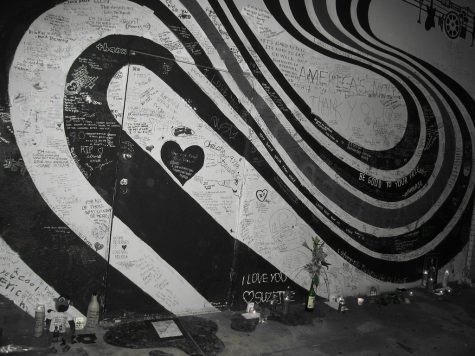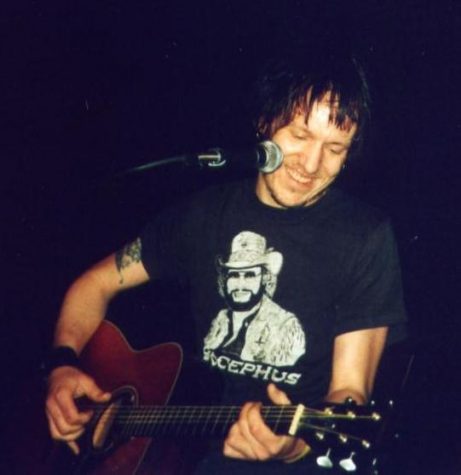“Either/Or”—A Masterful Album by a Tragically Underrated Artist
Although it wasn’t his first album, “Either/Or” by Elliott Smith was, for many, a first first-impression of sorts. His debut album, “Roman Candle,” and the self-titled follow-up album, “Elliott Smith,” gathered only a cult following, never reaching a mainstream audience. With the release of “Either/Or” in February of 1997, Smith became much more well-known.
The album starts with “Speed Trials,” definitely one of the less appealing songs on the album. It is a matter of taste, but I didn’t particularly enjoy this song. On the other hand, the second song “Alameda” did get stuck in my head. It has an attractive dissonance in the opening chords which is tied together by the melodically enthralling chorus.The song has a certain brilliance that can only be accomplished within the minor key.
Coming after Alameda is the enigmatic “Ballad of Big Nothing.” Its lyrics are quite difficult to interpret. Nonetheless, the song captures the style that Elliot chases. Reminiscent of a Van Gogh painting, Elliott tells a story without ever having to say anything. While there are lyrics, they are very mysterious and ambiguous. But from the sinking opening chords all the way to the last two words, “Big Nothing,” the song follows a weary soul in search of meaning.

The most acclaimed song on the album is the next song, “Between the Bars. It is a purely acoustic masterpiece, though depressing. Its lyrics express themes of dependence and loneliness; Its melody is beautifully composed and perfectly harmonized. The final F minor chord leaves an unsettling hole in the listener’s soul, waiting unfulfilled for a resolution that never comes.
The next two songs, “Pictures of Me” and “No Name No. 5” are mediocre. I found them good at first, but they quickly wore out. While still decent songs, they don’t have much that makes them stand out. “Pictures of Me” does include more heavy instrumentation that shows a transition period in Elliott’s career.
Next is “Rose Parade” and “Punch and Judy”. Both are very satisfying songs with beautiful melodies and creative chord progressions, but other than that there’s not much else to say about them.
“Angeles” is my favorite song on the entire album. It has a particular quality to its composition that gives it haunting color, with the Bob Dylan-esque, fast-pace fingerstyle giving it an adventurous outline. The lyrics are once again mysterious, which is an idiosyncrasy common to all Elliott Smith songs, but beautifully written. When I first listened to it I got the sense that it was someone making a deal with the devil, or some evil higher power. Its hook “So glad to meet you Angeles” brought me back to the song, just for that one part. Eventually I fell in love with the whole thing.

The next songs are “Cupid’s Trick” and “2:45 AM.” While I never did enjoy “Cupid’s Trick,” I always found “2:45 AM” to be exciting. Elliott starts the song with nothing but acoustic guitar. By the second verse, Elliott double tracks the vocals. Finally, just as the last chorus starts, Elliott comes in with the drums and a second guitar. This surprises the listener and gives the song a very appealing quality.
The final song on the album is “Say Yes.” It also happens to be my second favorite song on the album. Its lyrics are wistfully nostalgic and the chords are likewise. Its tracks are perfectly arranged so that they come in at just the right moment. I love the touch of having the acoustic guitar solo in the right ear while the other guitar plays the chords in the left ear, especially during the two part harmony in the chorus.
The album itself wasn’t an overwhelming success initially, for it did not chart in the United States. It only gathered attention, later, when five of its songs appeared in a film, Good Will Hunting. Some of the songs featured in the film were “Angeles”, “Say Yes”, “Between the Bars”, and “Miss Misery” (a single).
Elliott Smith went on to perform “Miss Misery” at the Oscars, it was nominated for one, but he, unfortunately, did not win. Still, the act allowed his music to reach new ears and led to well-deserved growth in publicity for a tragically underrated artist.
